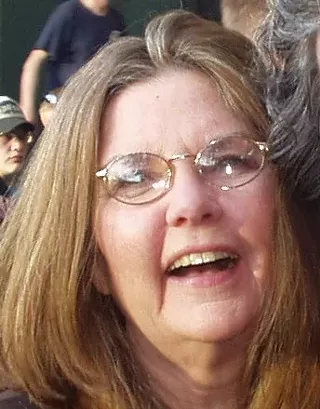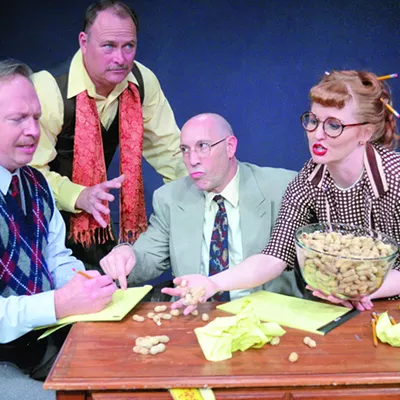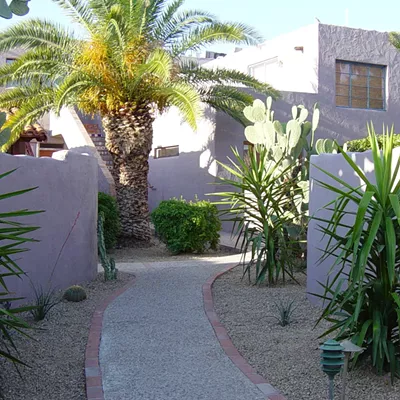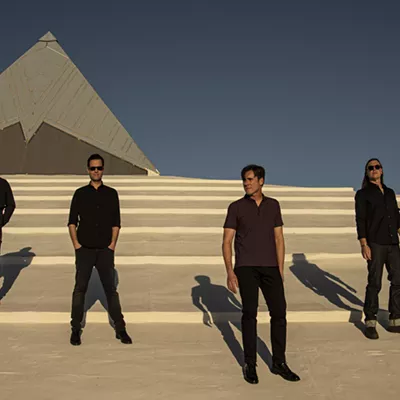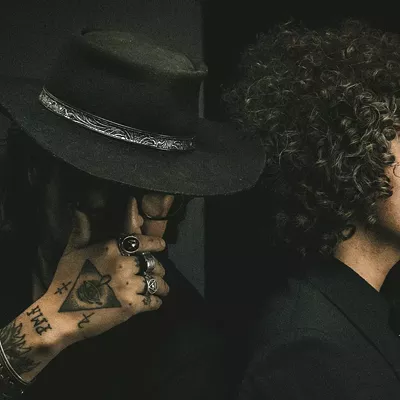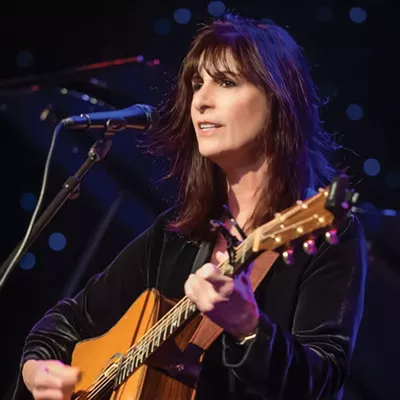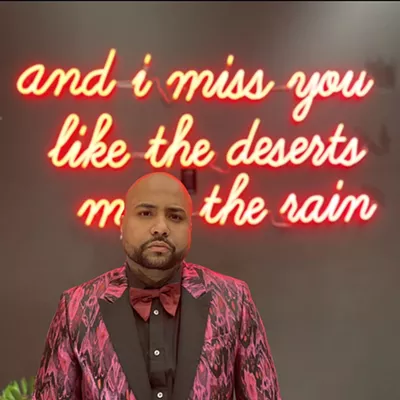The band's Congress configuration will comprise nine musicians with a repertoire somewhat broader and more intricate than the irresistible samba and samba-reggae drum music that's set Tucsonans of all ages crazy-dancing through the streets at the Family Arts Festival, the All Souls Procession and random acts of samba since 2002.
"Our thing with the smaller group," Berrien says, "is to play styles of music that the big group can't play--forró, embolada, maracatu, pagode."
The smaller group also gets paid, an important distinction to what is otherwise an all-volunteer organization. "My challenge is that I know as a musician, there's only so far you can go asking things from volunteers before you start to burn them out. I'm modeling it after what I saw in Brazil. These really big samba schools also have smaller groups that go around. That's the way they do it."
Brazilian samba schools, especially the Ilè Aiyè (House of Life) organization in Salvador, Bahia, are the touchstone of Batucaxé. Fifteen members visited Salvador, Bahia, and the airplane-hangar-sized, three-story samba school building in 2006. Their intention was to learn more about the traditions of Carnaval, but the spectacle was the least of it. Batucaxé wanted to know more about the music culture behind it, and especially its role in the community. Batucaxé hopes to build community by empowering people, everyone, to make music and dance, and to do it collectively. Berrien calls it "culture building."
"Batuca is a word that in Spanish and Portuguese means 'to beat,'" Berrien explains. "Axé (also spelled ashé) is an African word that means 'the power to make things happen.' It's kind of like the Chinese concept of 'chi.' In Africa, you would say 'ashé' to someone, and it would be like giving them a blessing. So 'Batucaxé (bah-TOO-kah-shay) means 'the blessing of the beat.'"
Berrien and his fellow travelers marveled at the importance of music and musicians to the cohesiveness of community life in Salvador, Bahia, despite generations of incomprehensible poverty. Residents live in thousands of illegal, rickety shanties with no water, electricity or city services, but music is everywhere on the streets, and musicians are their community organizers.
"This isn't a very good way to put it," Berrien says, "but, you know, Bono? He'd be a dime a dozen in Brazil. These people understand that if we don't do it for each other, the government's not going to do it for us. Ilè Aiyè has been a model for me, of what I feel (President Barack Obama's) calling us to do--civic engagement."
Berrien played trumpet and bass in high school in Washington, D.C., but attended Howard University with the intention of becoming a nutritionist. He later studied percussion and performed with the drummer for proto-rapper Gil Scott-Heron ("The Revolution Will Not Be Televised"). In the '80s, Berrien played drums in an ensemble with percussionist Alyrio Lima of the venerable jazz-rock fusion outfit Weather Report.
"He was the starting place for me with Brazilian music," Berrien says. "At the time, I was familiar with African drumming and jazz drumming, but that's all. He would tease me and the other drummer, who was Mexican American, that we were always playing the same rhythms, and that we needed to get on board with Brazilian music."
With that challenge, Berrien became immersed in not only the variety, but also the history of beats in Brazilian music--the unique mix of African, Brazilian indigenous and Iberian influences. "Since then, it's always been something that's been there, so I wanted to go to Brazil, and I wanted to do something more with Brazilian music, and I've had chances to do that off and on with other people."
But it's Batucaxé that's taken him from his art to his calling.
"Culture building is a co-creative process. It takes a lot of energy," he says. "I have seen that what keeps a community moving forward is its cultural artifacts. It's important to our children, and our adults, to learn to have cultural artifacts that they can be part of. It's a different kind of education, but it's education."

